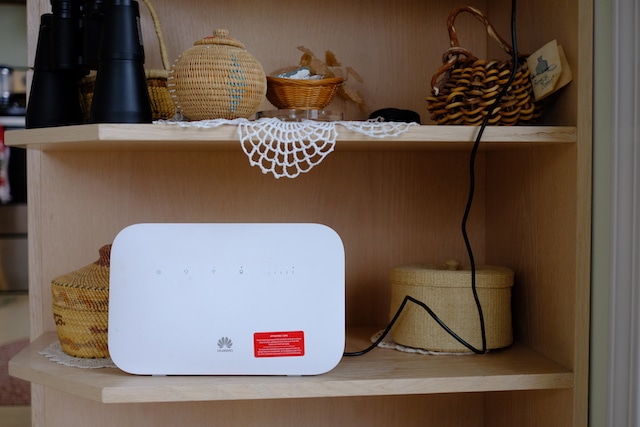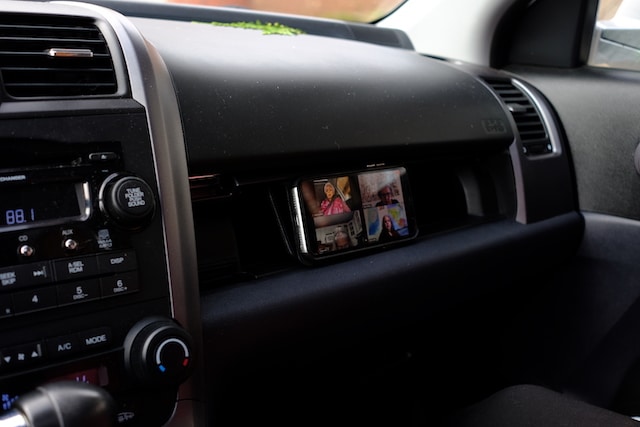By David Archer
Even on a clear day, squinting to the east, Turtle Island hides behind the horizon. The wide ocean keeps Haida Gwaii physically distant, but, despite the divide, islanders share common struggles with all people who have cared for one another by remaining apart.
When households are isolated, having reliable internet access is an incredible advantage. It’s easy to take for granted. But in Haida Gwaii, not everyone has access to the tools they need to fully participate in life online.
Haida Gwaii is a microcosm of the world when it comes to digital inequity, says Tomas Børsa, PhD candidate at Oxford University. As part of his PhD thesis project, Tomas has studied and collected data about internet access and the use of technology on Haida Gwaii. More than 300 islanders gave their input, an impressive sample given the small population.
Thanks to a $50,000 Covid-19 Emergency Response grant from Gwaii Trust, Tomas has been able to work with Jisgang Nika Collison, Executive Director of Haida Gwaii Museum, on a program called iPads for Elders, which aims to equalize access to technology among the islands’ senior citizens.
The iPads for Elders program is a partnership between the Council of the Haida Nation, Haida Gwaii Museum and School District 50. The team has worked with Village and Municipal liaisons to create a program that will see 35 new iPads distributed to Elders in communities across Haida Gwaii.
The overall intent of the program was to “address three prongs of digital inequity,” says Tomas. Those three barriers to technology are:
- Access: Not everyone has an internet connection or devices.
- Affordability: Not everyone can afford to get online.
- Digital literacy: Not everyone knows how to use technology like smartphones, tablets and web browsers.

When it comes to digital inequity, Haida Gwaii is in a particularly tough situation, says Tomas, “when you factor in affordability, digital literacy, and the mere availability of any sort of connection.”
“There are places along the coast like Ketchikan and Bella Bella and so on where, on one of those [three] measures, they might have it even worse.” But in Haida Gwaii, the combination of all three factors presents a major challenge.
The iPads are offered through a simple loan program. But there are no due dates or library fines. The idea is to give every Elder enough time to learn to use the technology and to maintain connectivity throughout the pandemic. To further reduce the affordability barrier, the program has also been able to provide some assistance with internet services through the support of Mascon.
It isn’t always easy to learn a new technology. Nika and Tomas realized that this may be the first time some Elders will have used an iPad or the internet. To help Elders learn more easily and have fun at the same time, Tomas worked with community Elders and local graphic designer and illustrator Jen Bailey to create an iPad for Elders User Guide. The guide is designed specifically for Haida Gwaii, and it includes all the basics – turning on the iPad, connecting to the internet, common gestures and apps, charging the device and internet safety – so that elders can get started right away. (Pro tip from the guide: Keep track of your passwords!)

An Elder takes notes as she learns to use email. This took place as the iPads for Elders program was in development. 
The iPad User Guide created for Haida Gwaii Elders 
Learning how to pinch and zoom in to see a photo more closely.
Elders who are already online use their devices in very unique ways, says Tomas. Facebook is extremely popular in Haida Gwaii, as it is in many First Nations communities, he says. Beyond social media, the connectivity is important for Elders to participate in cultural convenings and ceremonies that have found their place online. Elders also tend to visit forums and online shops related to their favourite hobbies. “We installed AutoTrader on the iPads as one of the first apps because it was being asked for so much,” says Tomas. Vancouver Island Public Library services are in demand too. Local library branches have offered to manage the loan program by serving as the pick-up and drop-off points in their communities, as has Old Masset Village Council’s Adult Day Program.
Digital devices also make public meetings more accessible to Elders and others who could not otherwise attend. “The Village of Queen Charlotte, for example, going online with its village council meetings – the views on that are skyrocketing. And anecdotally, those views are coming alot from Elders,” says Tomas. Elders who might not be able to travel to the village office, or feel comfortable doing so in the winter, can now easily participate.

This Skidegate Haida Immersion Program (SHIP) meeting took place online. 
Jiixa Gladys Vandal enjoys a road trip during which she was able to participate in a SHIP meeting.
There is more in store for the program. Once all iPads have been distributed in May 2021, Vaughan New of Northern Savings Credit Union will deliver an online safety course for Elders. A partner project called Youth Technology Mentorship, led by Julia Weder of Hiit’aganiina Kuuyas Naay Skidegate Youth Centre and Beng Favreau of Literacy Haida Gwaii, will match Elders with young people who can pass on knowledge of new technologies. This is expected to create part-time employment for local youth.
iPads for Elders is an encouraging example of creative community members stepping up to help one another adapt to the pandemic. Another example is School District 50’s Haida Gwaii Technology Relief program, which has provided many students with equipment for online learning. Gwaii Trust Society’s COVID-19 Response Grant has also helped islanders care for one another through meal delivery programs, gardening and greenhouses, a soup kitchen, maternal child health support, meal delivery and activities for seniors, new air filtration systems, personal protective equipment for firefighters, economic and job supports, and, of course, the famous island-wide halibut delivery of 2020. The COVID-19 Response grant continues into 2021 with a focus on mental health. It will no doubt continue to help islanders feel less alone during this difficult time.
And, before long, you’ll be able to wave hello to a few more Elders, ChinG̱alang/Tsinalang and NaanG̱alang/Naanalang* on your screens.
For more information on the iPads for Elders program, reach out to: ipadsforelders@haidagwaiimuseum.ca
*Grandmothers and Grandfathers. Haawa/Haw’aa to Nika Collison and Jaskwaan Bedard for translation.
All photography by Tomas Børsa.







